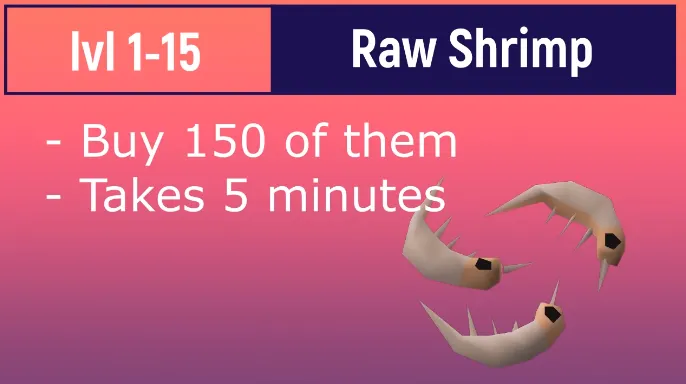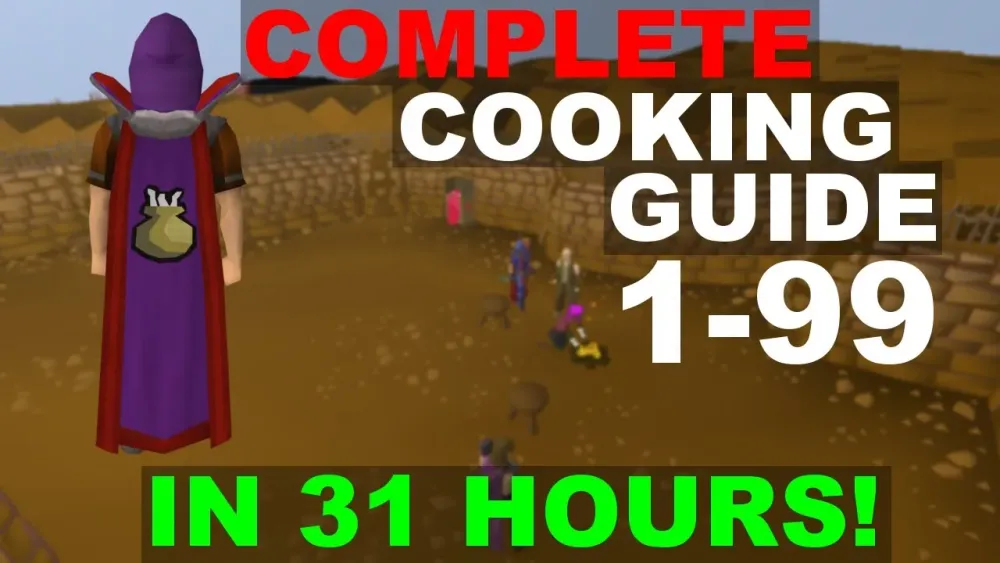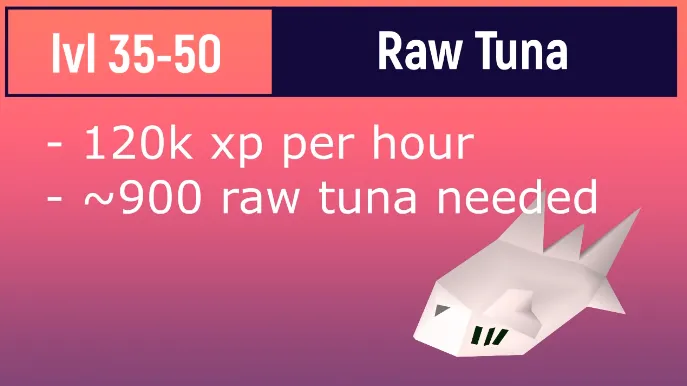Your cart is empty
OSRS Cost Effective Food Guide for Smart Adventurers

Warning: Undefined variable $post in /home/osrsmoneymaking.guide/public_html/wp-content/themes/kadence/functions.php on line 391
Warning: Attempt to read property "ID" on null in /home/osrsmoneymaking.guide/public_html/wp-content/themes/kadence/functions.php on line 391
In Old School RuneScape (OSRS), food is your lifeline, restoring hitpoints to keep you alive during combat, slayer tasks, or boss fights. But with Grand Exchange prices fluctuating and gold hard to come by for some players, choosing cost-effective food is key to stretching your budget without sacrificing survivability. This guide dives into the best affordable food options in OSRS, balancing healing power with price to ensure you’re prepared for any challenge. Whether you’re a free-to-play (F2P) player, a member, or an Ironman, we’ve got you covered with practical tips and strategies.
Eating the right food in OSRS isn’t just about healing—it’s about optimizing your gameplay. Expensive foods like sharks or anglerfish can drain your gold quickly, especially during prolonged training sessions or bossing. By choosing cost-effective alternatives, you can save millions of coins over time, leaving more for gear, skills, or that dream item you’ve been eyeing. Plus, for Ironmen or low-level players, accessible food sources are critical when Grand Exchange purchases aren’t an option.
Balancing Healing and Cost
The goal is to maximize hitpoints restored per coin spent. For example, a shark heals 20 hitpoints but costs around 900 coins, while a monkfish heals 16 hitpoints for roughly 400 coins. The monkfish offers 80% of the healing at less than half the price, making it a smarter choice for many scenarios. This guide prioritizes foods that deliver high healing-to-cost ratios, ensuring you stay alive without breaking the bank.
Who Benefits from This Guide?
This guide is for everyone—F2P players looking for cheap combat training food, members tackling slayer tasks, or Ironmen gathering their own resources. We’ll cover foods obtainable through fishing, cooking, farming, or drops, so no matter your playstyle, you’ll find something that fits.
Top Cost-Effective Foods for F2P Players

Free-to-play players face limited options, but there are still plenty of budget-friendly foods that pack a punch. These are ideal for combat training, PvP, or surviving the Wilderness without spending a fortune.
Lobster
Lobsters are a staple for F2P players, healing 12 hitpoints and costing around 100-150 coins on the Grand Exchange. They’re easy to obtain with level 40 Fishing and 40 Cooking, making them accessible for mid-level players.
- Pros: Cheap, decent healing, widely available.
- Cons: Outclassed by member foods for high-damage fights.
Anchovy Pizza
Anchovy pizza is the king of F2P healing, restoring 18 hitpoints (9 per bite) for about 500 coins. It’s a two-bite food, allowing combo-eating with other items for faster healing in clutch moments.
- Pros: Highest F2P healing, great for PvP combo-eating.
- Cons: Requires 55 Cooking to make, pricier than lobsters.
Swordfish
Swordfish heal 14 hitpoints and cost around 300 coins. They’re a middle ground between lobsters and premium foods, ideal for tougher F2P foes like lesser demons.
- Pros: Better healing than lobsters, moderate price.
- Cons: Less cost-efficient than lobsters for low-damage fights.
Best Cost-Effective Foods for Members

Members have access to a wider variety of foods, many of which offer superior healing at lower costs. These options shine for slayer, bossing, or skilling activities like Agility.
Monkfish
Monkfish are a go-to for members, healing 16 hitpoints for about 400 coins. They’re fishable at Piscatoris Fishing Colony after completing Swan Song, requiring 62 Fishing and 62 Cooking.
- Pros: High healing-to-cost ratio, easy to gather for Ironmen.
- Cons: Quest requirement, burns until high Cooking levels.
Basket of Strawberries
A basket of strawberries holds five strawberries, each healing up to 6 hitpoints (based on your Hitpoints level), for a total of 30 hitpoints per basket at around 700 coins. They’re fantastic for inventory efficiency.
- Pros: High healing per slot, cost-competitive with sharks.
- Cons: Click-intensive, less effective below 84 Hitpoints.
Tuna Potato
Tuna potatoes heal 22 hitpoints for roughly 1,200 coins, requiring 68 Cooking to make. They’re a bit pricier but offer excellent healing for tough fights like God Wars Dungeon minions.
- Pros: High single-bite healing, craftable for Ironmen.
- Cons: Expensive ingredients, high Cooking requirement.
Karambwan
Cooked karambwans heal 18 hitpoints for about 600 coins and can be combo-eaten with other foods for rapid healing, making them a favorite for PvM and PvP.
- Pros: Combo-eating potential, solid healing.
- Cons: Requires 65 Fishing and 30 Cooking, burns easily without Cooking cape.
Comparing Food Costs and Healing
To make informed choices, let’s break down the numbers. The table below compares popular foods by their healing, approximate Grand Exchange price, and cost per hitpoint healed (based on 2025 prices).
| Food | Healing (HP) | Price (GP) | GP per HP |
|---|---|---|---|
| Lobster | 12 | 150 | 12.5 |
| Anchovy Pizza | 18 | 500 | 27.8 |
| Swordfish | 14 | 300 | 21.4 |
| Monkfish | 16 | 400 | 25.0 |
| Basket of Strawberries | 30 | 700 | 23.3 |
| Tuna Potato | 22 | 1,200 | 54.5 |
| Karambwan | 18 | 600 | 33.3 |
| Shark (for comparison) | 20 | 900 | 45.0 |
Note: Prices fluctuate, so check the Grand Exchange before buying in bulk. Lobsters and monkfish stand out for low GP per HP, while strawberries shine for inventory efficiency.
Tips for Gathering and Using Cost-Effective Food
Maximizing your food’s value goes beyond picking the cheapest option. Here are strategies to get the most out of your resources, whether you’re buying, fishing, or cooking.
Fishing and Cooking Your Own Food
For Ironmen or budget-conscious players, gathering your own food saves gold. Popular spots include:
- Catherby (F2P): Fish lobsters or swordfish with 40-50 Fishing.
- Piscatoris Fishing Colony: Catch monkfish after Swan Song (62 Fishing).
- Karamja: Fish karambwans with 65 Fishing near the DKP fairy ring.
Use the Hosidius Kitchen for a 5% burn reduction, and wear Cooking gauntlets to stop burning lobsters at level 64 instead of 74.
Combo-Eating for Efficiency
Combo-eating lets you heal more in less time, crucial for PvP or high-damage bosses. Pair foods like:
- Anchovy Pizza + Swordfish (F2P): Heals 23 hitpoints in one tick.
- Karambwan + Shark: Heals 38 hitpoints rapidly for members.
Practice the timing—eat the slower food first, then the combo food (like karambwan) for instant healing.
Farming for Strawberries
Strawberries are farmable with 31 Farming, yielding 5-10 per patch. Plant them at allotments (e.g., Catherby or Hosidius) for a steady supply, perfect for Ironmen or players avoiding the Grand Exchange.
When to Splurge on Premium Foods
While this guide focuses on budget options, premium foods like anglerfish (22 hitpoints, overhealing) or dark crabs (22 hitpoints) are worth it for endgame content like Raids or Inferno. Save these for situations where every hitpoint counts, and stick to monkfish or strawberries for everyday tasks.
Final Thoughts on Cost-Effective Eating in OSRS
Choosing the right food in OSRS is about strategy, not just survival. Lobsters and anchovy pizzas dominate F2P, while monkfish, strawberries, and karambwans offer members affordable power. By fishing your own resources, combo-eating wisely, and checking Grand Exchange prices, you can keep your hitpoints high and your coin pouch full. Experiment with these options based on your budget, Hitpoints level, and goals—whether it’s slaying dragons, training combat, or conquering Jad, there’s a cost-effective food for every adventurer.
Got a favorite budget food or tip? Share it in the comments, and let’s keep the conversation going!
Warning: Undefined variable $post in /home/osrsmoneymaking.guide/public_html/wp-content/themes/kadence/functions.php on line 391
Warning: Attempt to read property "ID" on null in /home/osrsmoneymaking.guide/public_html/wp-content/themes/kadence/functions.php on line 391

